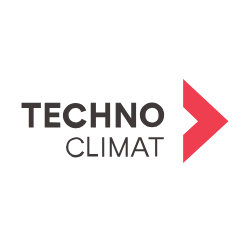
MAPAQ — Prime-Vert — Component 1
At a glance
- Maximum amount : 125,000 $
- Up to 50% of project cost
- Open Date : November 29, 2024
- Closing date : February 15, 2026
- Agriculture, forestry, fishing and hunting
- Quebec
- For-profit business
- Sole proprietorship
- Non-financial cooperative
- All revenue ranges
- All organization sizes
- Rural or Northern Residents
- Startups
Overview
The Prime-Vert program aims to increase the adoption of agro-environmental practices by agricultural businesses, providing a maximum funding of up to $125,000 for eligible activities such as pesticide reduction, soil health improvement, waste management, and conversion to organic farming. Eligible applicants include individual agricultural operations and cooperatives, with funding covering various projects like acquisition or modification of equipment and implementation of environmental protection measures.
Activities funded
- Projects reducing the use of pesticides and their risks to the environment and health, including the purchase or modification of mechanical, manual, electric, or thermal weeding equipment; risk-reducing pesticide equipment; insect netting installation; use of biological control agents or pheromones.
- Projects improving soil health and conservation, such as the purchase or modification of equipment for simultaneous seeding and incorporation of cover crops.
- Projects improving management of fertilizing materials, including acquisition or modification of equipment for enhanced precision in fertilizer spreading.
- Projects optimizing water management, such as the implementation of hydro-agricultural structures, construction of water supply and storage works, and purchase or rental of irrigation water management equipment.
- Projects enhancing biodiversity, including the establishment of widened riparian strips and vegetated banks, creation of habitats for biodiversity, and installation of agroforestry hedges.
- Projects for managing agricultural residual materials (e.g., washing water from fruits and vegetables, maple sap production waters, agro-processing wastewater, greenhouse nutrient solutions, animal manure, plant residues), including source-based reduction measures, pre-treatment, storage, on-field disposal, composting, or biosolids drying.
- On-farm experimental trials for the adoption of agro-environmental practices supervised by advisors.
- Conversion projects to organic farming for plant, maple, and beekeeping production units, including support for obtaining pre-certification and certification.
Eligibility
Eligibility for this grant is determined by specific requirements related to the applicant's profile and proposed activities.
- The applicant must be an agricultural operation or a cooperative for the use of agricultural equipment (CUMA) with at least three agricultural operations in the concerned branch of activity.
- The project must correspond to an eligible type of project under the specified sub-volets, meeting particular requirements.
- The applicant must provide necessary documentation such as a financial aid application form, detailed submissions with proof of prices, and project-specific recommendations or plans as applicable.
- For certain sub-volets, proof of conformity or diagnostic documentation may be required.
- Certain grants or increased aid percentages are available if projects are being conducted by young farmers, hold pre-certification in organic agriculture, or are executed in specific regions like the Madeleine Islands.
Who is eligible?
- Agricultural enterprises (individual farming operations)
- Agricultural Equipment Cooperatives (CUMA) with at least three participating agricultural enterprises in the relevant sector
- Agri-food processors (for specific projects related to agro-residual materials management)
Who is not eligible
This grant does not specify exclusions related to company types or industries beyond the detailed requirements for eligible projects and applicants. The emphasis is on qualifying agricultural operations and associated activities for environmental advancements.
Eligible expenses
- Purchase or modification of mechanical, manual, electric, or thermal weeding equipment.
- Purchase or modification of equipment reducing pesticide-related risks.
- Implementation of anti-insect nets.
- Use of biological control agents or pheromones.
- Purchase or modification of equipment for simultaneous seeding and incorporation of cover crop seeds.
- Purchase or modification of equipment to improve the accuracy of fertilizer application.
- Implementation of hydro-agricultural works.
- Implementation of water supply and water storage works.
- Purchase or rental of irrigation water management equipment.
- Development of widened riparian strips and vegetated shorelines.
- Development of habitats for biodiversity.
- Establishment of agroforestry hedges.
- Implementation of measures for reduction, pre-treatment, or treatment of wash water from fruit and vegetable washing.
- Implementation of measures for reduction, treatment, or management of wash water from maple syrup production.
- Implementation of measures for reduction, pre-treatment, or treatment of process wastewater from agroprocessing.
- Implementation of measures for reduction, treatment, or management of greenhouse nutrient solutions.
- Implementation of measures or infrastructure for the management of animal manure in exercise yards or near livestock buildings.
- Implementation of measures for reduction, storage, or treatment of plant residues from production or agroprocessing.
- Costs specifically associated with conversion to organic agriculture, according to the type of production (e.g., per hectare, per hive, per tap, per m² greenhouse).
How to apply
Consultation of the full text of the program
- Familiarize yourself with the full text of the program.
- Consult the applicant's guide and other relevant documents for the concerned intervention.
Preparation of the required documents
- Download and complete the financial assistance application form.
- Gather the required documents, such as detailed quotes or equivalent information with price evidence, and the purchase order if applicable.
- Prepare the plans and specifications signed by a consultant if necessary.
Recording and opening the form
- Save the assistance request form on your workstation.
- Open the form with Adobe Reader to enter the data.
Submission of the request
Additional information
The grant has a range of miscellaneous information to support applicants in the process and requirements of submission.
- Bonification of 15% for eligible client groups: young farmers, those with pre-certification or certification in organic farming, CUMAs, and projects in Îles-de-la-Madeleine.
- The application must be submitted electronically and be complete with all required documents.
- The financial aid awarded covers up to 50-70% of eligible expenses, depending on the project type.
- Application forms must be downloaded, filled, and submitted via email.
- Claims for reimbursement require invoices, proof of payment, and other specified deliverables to be provided upon request.
- Applicants have a right to appeal an evaluation decision within 30 days of communication.
- Various technical and diagnostic forms are provided online and must be used for application where specified.
- A presentation interactive for the Prime-Vert program and several detailed presentations for sub-components are available in PDF format for reference.
Frequently Asked Questions about the MAPAQ — Prime-Vert — Component 1 Program
What is the MAPAQ — Prime-Vert — Component 1?
How much funding can be received?
What is the deadline to apply?
Who is eligible for the MAPAQ — Prime-Vert — Component 1 program?
What expenses are eligible under MAPAQ — Prime-Vert — Component 1?
Who can I contact for more information about the MAPAQ — Prime-Vert — Component 1?
Where is the MAPAQ — Prime-Vert — Component 1 available?
More programs like this

Support for biofood exports - individual projects
Ministry of Agriculture, Fisheries and Food (MAPAQ)
ÉcoPerformance — Recommissioning of building mechanical systems
Gouvernement du Québec
Financing to respond to the offensive of new tariffs and for initiatives for resilient and exporting companies (FRONTIERE)
Investissement Québec (IQ)
Program to support the development of agriculture and agri-food in the regions
Ministry of Agriculture, Fisheries and Food (MAPAQ)
Efficient Solutions Program — Agricultural Component
Hydro-Québec
PADAAR — Measure 4021 – Promotion of regional products
Ministry of Agriculture, Fisheries and Food (MAPAQ)
Support program for the development of reserved designations and promotional terms — Component 1
Ministry of Agriculture, Fisheries and Food (MAPAQ)
AgroPerformance – Stream 1 : Support for the agricultural sector in adopting agritechnologies
Gouvernement du Québec
Innovative Projects Program
Hydro-Québec